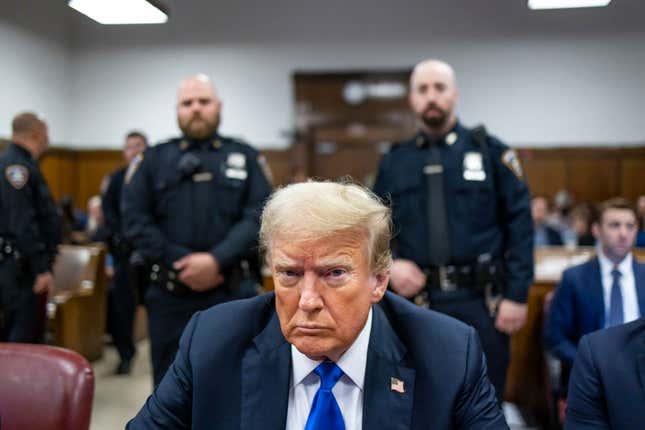
Donald Trump hasn’t even taken office yet, and he’s already showing us his second term will be even more chaotic than his first. With his Cabinet taking shape and more policies being announced, this is no longer a joke or some theoretical exercise. Based on the nominees he has announced, Trump is seeking to install loyalists who will carry out every aspect of his agenda.
It would be a mistake for us to focus solely on Cabinet nominees. While they will do their best to push forward the Trump agenda, federal judges will determine just how far it will go. Under our system of checks and balances, judges interpret the law. They decide when a statute should be upheld or struck down. And they define which rights we do – and don’t – enjoy under the Constitution. Trump has promised actions that have already sparked questions about the legal limits of his authority. Judges will be the ones to answer them.
Over the course of his first term, Donald Trump left an indelible mark on the federal bench. In just four years, he appointed more judges – 234 – than many presidents did in eight. That includes 177 judges appointed to the district court and 54 appointed to the more powerful court of appeals. These judges are conservative, in many cases recommended by a right-wing legal organization called the Federalist Society. Only nine of them are Black, far fewer than the 54 President Biden has appointed over the past four years. And they are young. Whereas only six of the judges President Obama appointed to the court of appeals were under the age of 45, 20 of Trump’s were. This matters because judges – unlike elected officials – serve for life.
Trump-appointed judges have been active in invalidating many policies put in place by the current administration. A Trump-appointed district judge in Texas struck down the Biden student loan forgiveness plan. The same judge deemed the mission of the Minority Business Development Agency to be unconstitutional. And just the other day, another Trump appointee blocked a rule that would have made millions more workers eligible for overtime pay. Meanwhile, following Trump’s appointment of three conservative justices, the Supreme Court has stripped agencies of significant regulatory authorities, erased the constitutional right to an abortion, and given the president immunity akin to a monarch.
Over these next four years, Trump will likely attempt to enact policies that stand on shaky constitutional ground. Already, he has called for mass deportations, reparations for white folks, and the death penalty for drug traffickers. If and when the president moves forward in carrying out these plans, legal challenges will follow. Progressive organizations will bring lawsuits in federal courts with more liberal judges, but that strategy can only go so far. Even with liberal judges in place at the district and appellate levels, the Supreme Court’s 6-3 conservative majority gives Trump a distinct advantage. Not to mention the fact that Trump will be able to appoint even more lower court judges over the four years ahead. And after several of his appointees rejected his claims of a stolen 2020 election, some fear he will seek to appoint not principled conservatives, but loyalists eager to do his bidding from the bench.
It’s important we recognize our power in this process. Federal judges must be confirmed by the Senate before they can take their seat on the bench. Let’s say Trump nominates a lawyer who has promoted racial gerrymandering (he actually did this the last time he was in office). Senators will review his record and hold hearings to determine whether he is qualified. Ultimately, each senator will get to vote on the nomination. So, call them! Demand that they vote no. Get your neighbors to join you. It just might move the needle. And in case you’re interested, the Alliance for Justice has a page where you can read up on all of the judicial nominees pending before the Senate. Bookmark it and check it regularly as we enter this next Trump term. And when you make a call, cite specific information on the page as the reasons why your senator should oppose that nominee.
While many of us did our part, the unfortunate reality is that we will all have to live with the consequences of this election. Over the next four years, many of those consequences will play out in the courts. And while we largely can’t change the current composition of the judiciary, let’s use our power to shape the bench – and our country – moving forward.
Gevin Reynolds is a former speechwriter to Vice President Kamala Harris.

